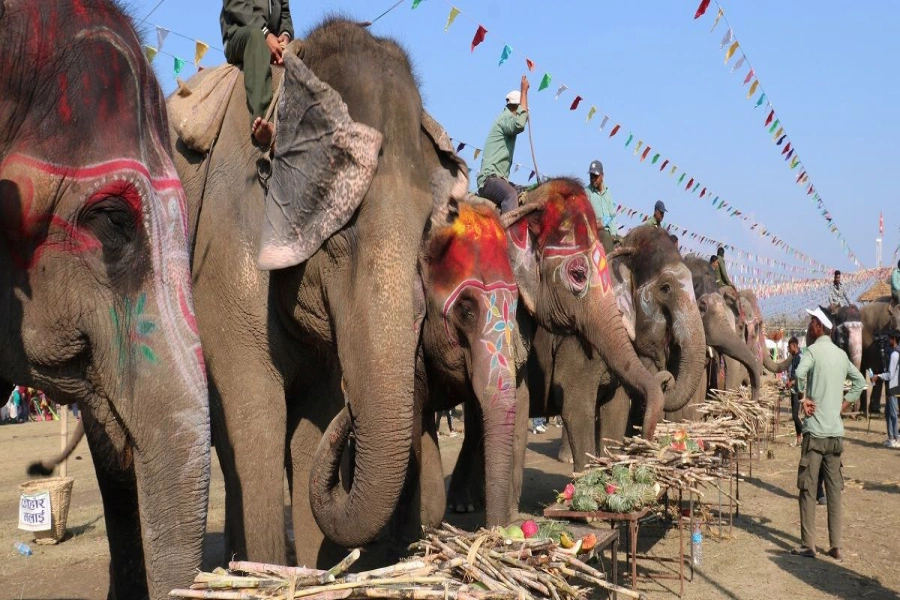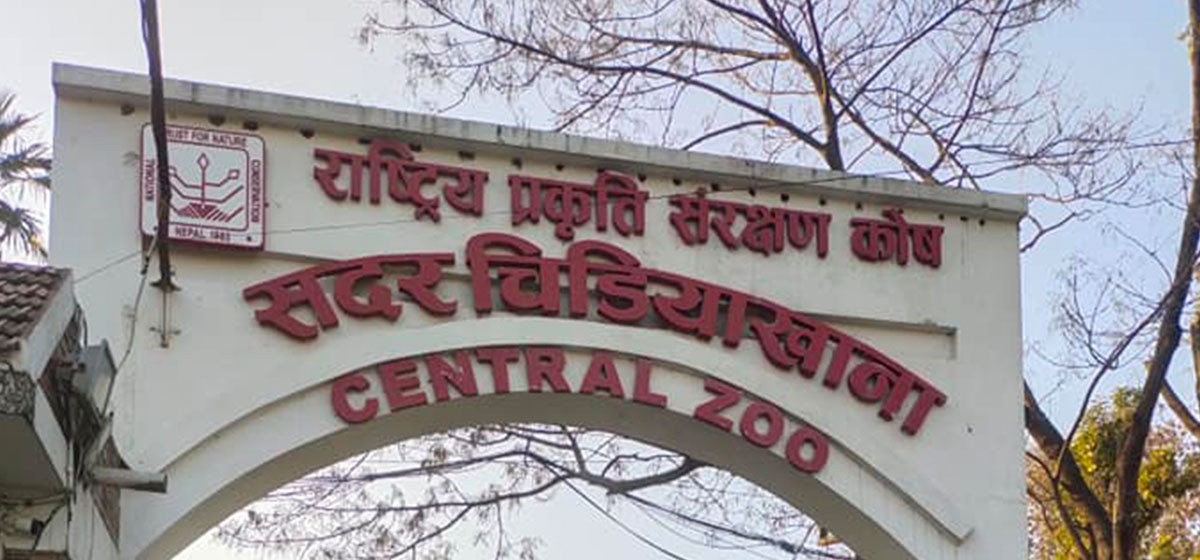KATHMANDU, Jan 29: A wild animal which is considered rare in the world and found in Nepal is now in the limelight. It is not only being talked about but is also giving rise to many suspicions and curiosity in the field of wildlife conservation. This animal, which was found in the Terai only six days ago, has posed a challenge to researchers and scientists.
Yes, we are talking about the snow leopard found in Urlabari of Morang last Friday. The number of snow leopards in Nepal is estimated to be around 300 to 400. However, this animal, which is found at an altitude of 2,000 to 6,000 meters above sea level, was suddenly found at an altitude of only 146 meters. How? This is the subject of the current debate.
This snow leopard was found injured six days ago in a bamboo bush, Urlabari, Morang district. Everyone is surprised when an animal that is born, grows and thrives in the mountains is suddenly found in the plains.
Questions about how, where, and why the snow leopard arrived, whether it was brought by someone or came on its own, remain unanswered due to the lack of scientific evidence.
Estranged snow leopard brought to Central Zoo

After its rescue in Urlabari, the snow leopard has been temporarily housed in the Central Zoo in Lalitpur, where it is being kept in a cage with artificial cooling (air conditioning). The animal's permanent origin or habitat has not yet been confirmed. All efforts made over the past six days to determine where the snow leopard came from have been in vain.
"There is no scientific explanation of how and where it came from," Director General of the National Parks and Wildlife Conservation Department, Sindhuprasad Dhungana told Republica, "People are making speculations, but no scientific basis has been found. There is no proof of any statements and claims, either.”
He adds, “Some say it was left there during smuggling. How can someone put that 40/50 kg animal in a bag and bring it there?” Dhungana's statement also confirms that the origin of the snow leopard has not been revealed yet.
According to Director General Dr Dughana, the department will probably propose a task force today (Monday) to investigate how the snow leopard arrived in Urlabari.
"Perhaps a task force can be formed today," he said. The department is proposing to the Ministry of Forests for the formation of a study/research task force comprising two to three wildlife experts.
The leopard weighs 40 kg. It was found in a bamboo bush in Urlabari on Tuesday afternoon and subsequently rescued through the joint efforts of the Koshi Tappu Wildlife Sanctuary, National Nature Conservation Trust, Forest Administration, and police. Initially, the leopard was taken to Koshi Tappu. Dr Dhungana explained that it was brought to Kathmandu because arranging a suitable temperature in Koshi Tappu proved challenging.
“Kathmandu is colder than Koshi Tappu, so it was brought here,” he said. “Currently, we are keeping it in an artificially cool environment and monitoring the temperature.” Dr Dhungana also mentioned that the leopard is under the care of a veterinarian. Its back left leg was found injured and is currently receiving treatment. He speculates that the injury might have occurred when locals chased it.
Dr Dhungana said, “Despite various speculations, there is no scientific basis to confirm how the leopard ended up in the Terai region”
Snow leopards are found in 12 protected areas in the Himalayan region of Nepal. The area of about 12,815 square kilometers of that area is considered to be their habitat. These animals roam in the high Himalayan regions of China, India and Nepal.
Snow leopards are found in 12 countries of Central and South Asia including Nepal. Their total number in the world is estimated to be 3,921 to 6,290. Their presence is considered an indicator of a healthy ecosystem. It is also a species at the top of the natural food chain.




































